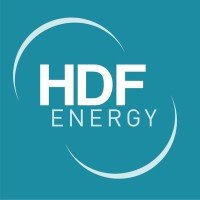EU approves €5.2 billion for IPCEI Hy2Use
The project contributes to a common objective by supporting a key strategic value chain for the future of Europe.

The European Commission has approved, under EU State aid rules, a second Important Project of Common European Interest (‘IPCEI’) to support research and innovation, first industrial deployment and construction of relevant infrastructure in the hydrogen value chain.
The project, called “IPCEI Hy2Use”, was jointly prepared and notified by thirteen Member States: Austria, Belgium, Denmark, Finland, France, Greece, Italy, Netherlands, Poland, Portugal, Slovakia, Spain and Sweden.
The Member States will provide up to €5.2 billion in public funding, which is expected to unlock an additional €7 billion in private investments. As part of this IPCEI, 29 companies with activities in one or more Member States, including small and medium-sized enterprises (‘SMEs’) and start-ups, will participate in 35 projects.
IPCEI Hy2Use will cover a wide part of the hydrogen value chain by supporting:
- The construction of hydrogen-related infrastructure, notably large-scale electrolysers and transport infrastructure, for the production, storage and transport of renewable and low-carbon hydrogen
- The development of innovative and more sustainable technologies for integrating hydrogen into the industrial processes of multiple sectors, especially those that are more challenging to decarbonise, such as steel, cement and glass.
Several projects are expected to be implemented soon, with various large-scale electrolysers expected to be operational by 2024-2026 and many of the innovative technologies deployed by 2026-2027. The completion of the overall project is planned for 2036, with timelines varying in the function of the project and the companies involved.
As part of the European Economic Area, Norway also participates in the IPCEI ‘Hy2Use’ with two individual projects. The EFTA Surveillance Authority is in charge of assessing State aid notified by Norway.
While both IPCEIs address the hydrogen value chain, Hy2Use focuses on projects that are not covered by Hy2Tech, namely hydrogen-related infrastructure and hydrogen applications in the industrial sector (while Hy2Tech focuses on end-users in the mobility sector).
President Ursula von der Leyen said, “This will help enabling breakthrough innovation and positive spill-overs for all of the EU economy and help power the economy of the future.”
Executive Vice-President Margrethe Vestager, in charge of competition policy, said, “Developing technologies for low carbon and, in particular, green hydrogen, and building the necessary infrastructure for its deployment, will take us one step closer to making Europe the first climate-neutral continent by 2050. “
Commissioner Thierry Breton, in charge of the internal market, said, “Europe’s industry is a global technology leader in hydrogen. Now is the time to roll out our technologies to Europe’s factory floors.”
